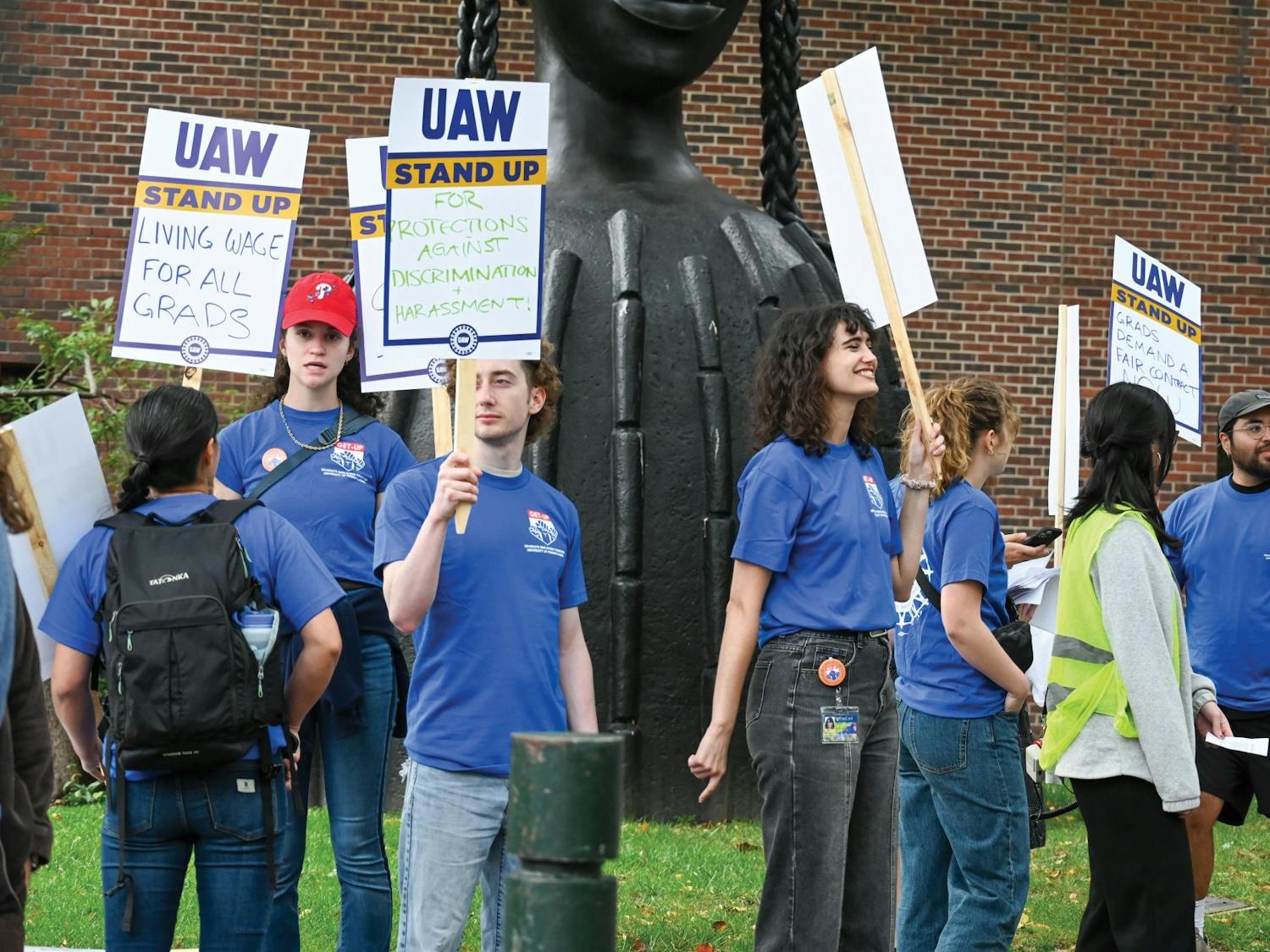It has attracted authors, professors, community activists, Philadelphia city officials and even a filmmaker.
The Latino Dialogue Institute, an extracurricular discussion group focused on exploring Latino issues, is wrapping up its pilot-year run with rave reviews from participants.
"It makes you think about your own experiences and perspectives in a broader sense," says College sophomore Arlene Fernandez, who is a political officer for the Latino Coalition. "And, to me, that's invaluable."
A core group of about 10 students met every other Monday throughout this year in locations across campus to learn about and discuss topics ranging from immigration to affirmative action to education.
The two-hour sessions, which often ran past their scheduled time, incorporated guest speakers, critical analysis of readings and discussion.
"It really is like putting together a class on top of going to our own classes," says LDI founding member, College junior and United Minorities Council Chairman Carlos Rivera-Anaya.
Nonetheless, "for everybody, it was a really incredible, enjoyable experience."
Guest speakers have included director and producer Maria Teresa Rodriguez, Penn psychologist Marilia Marien and College junior Peter Bloom, founder of the nonprofit Mexicanos Juntos.
The program's strength is its appeal across academic concentrations, according to participants.
"It really does encompass the interdisciplinary approach to learning," says Carlos Valdovinos, program coordinator at La Casa Latina. "It's dynamic in nature."
The institute's organizers say that LDI serves several important roles at Penn.
"We wanted to start LDI as a way to bring Latinos together," says College senior Veronica Lara, a founding member. "We've been very successful in creating a more cohesive community."
Rivera-Anaya said that the University lacks faculty who study many of the issues covered in the program's syllabus.
"This is really such a big problem at Penn," he says. "We're lacking in professors."
The institute is reapplying for its grant from the Provost's Diversity Fund, which will allow it to continue operating for another year. Ultimately, organizers hope to offer the program for credit.
Participants had nothing but praise for LDI.
"I have to say that it was a real eye-opener for me because you saw students engaging in discussions personally and academically," Valdovinos says. "It really turns into a sophisticated discussion on Latino issues."
College sophomore Rocio Polanco agrees, crediting LDI for her "renewed sense of self."
"It was a very safe environment, a lot of hashing out of issues and a lot of discourse," she says.
Several participants noted the program's emphasis on applying knowledge to the real world.
LDI "really kind of moves you to action or a better sense of information," says College senior and founding member Chris Kawasaki.
Lara agrees.
"It produces leaders," she says.








